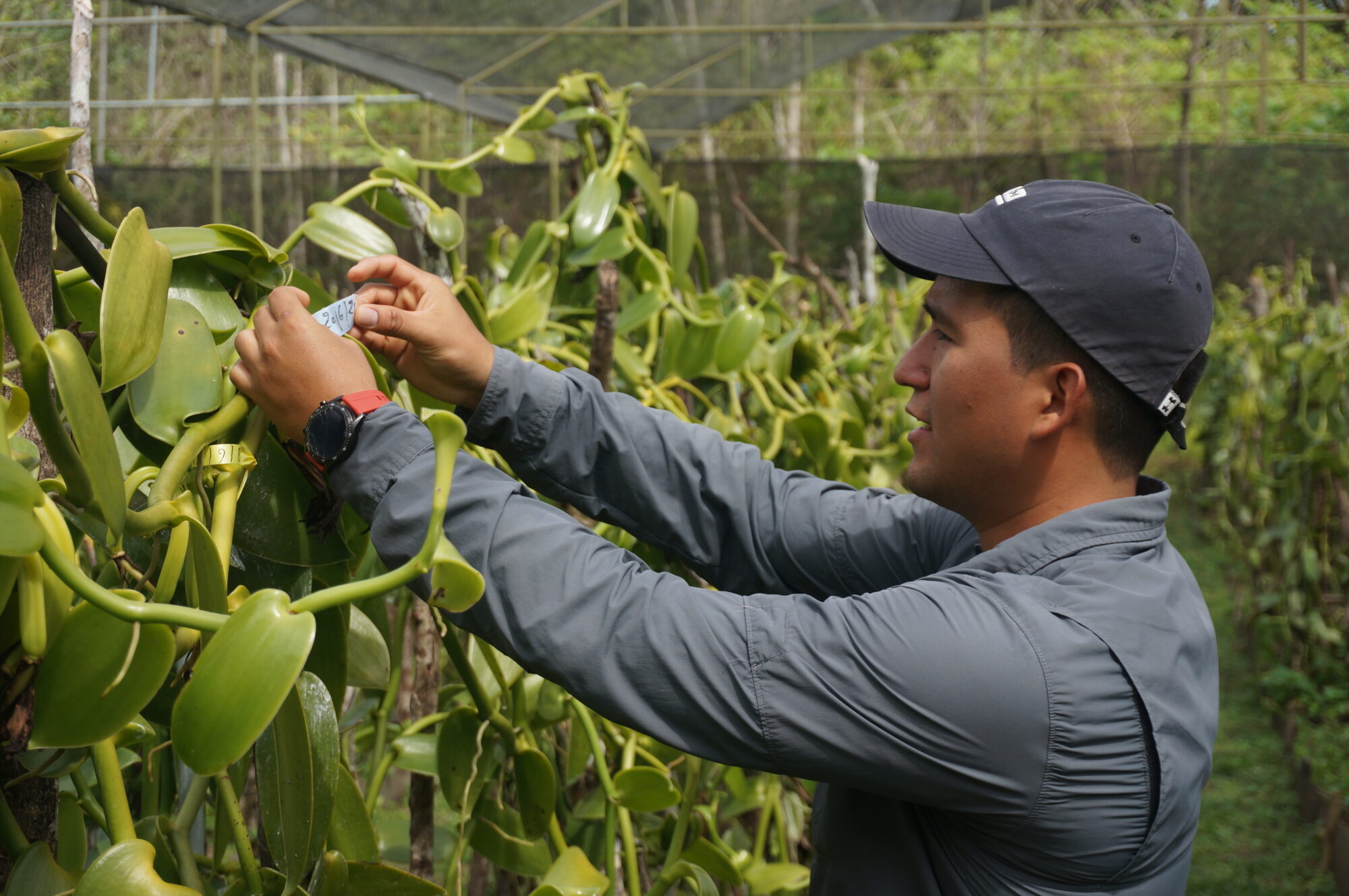Sustainable vanilla

Arturo explains to us that for him, sustainable development involves economic, ecological and social aspects. For him personally, the focus is on combating poverty in the long term. Poverty is particularly widespread here in the rural zones of the flat rainforest. Communities of the Aguaruna ethnic group, from whose language the name “Wawki” comes, live near Tingana. Wawki wants to provide them with better prospects through vanilla. To this end, they provide technical assistance in cultivation, help in obtaining information on plagues, diseases, better management. When the Aguaruna can harvest pods, Wawki buys them. This is how Wawki secures the market.
Some of Wawki’s partners from the Aguaruna community “Alto Mayo” told Arturo that by selling the vanilla fruits, they were able to increase their monthly income from 300 Soles (about 75€) to 2,000 – 3,000 Soles (500-750€). In this way, the vanilla helps to increase the purchasing power of the people. They can afford better clothes, better nutrition and better education. Arturo tells us about a special experience: A woman sold Wawki a small vanilla bean for 20 Soles (about 5€). It is amazing how this small pod can feed a family for one day. It is important to Arturo that the Aguaruna learn to educate themselves within the group. An Aguaruna should train other Aguarans. The ethnic group has spent so much time living with the orchids in their territory. The vanilla orchid is part of the Aguaruna identity. It is a beautiful idea. And the signs are good, more and more interested people are contacting Wawki and the vanilla producers of Peru.
Arturo is thinking much further. It is important to him that the state and other organizations recognize and promote vanilla as a useful source of income for the people here. He is convinced that vanilla will improve people’s quality of life. The whole sector is still uncharted territory, with field trials and initial networking bringing progress. There are many new players, all with different approaches and promises.
Arturo also explains to us the bigger picture of ecosystem and economy in the region. On the way to Moyobamba we pass many square kilometers of rice fields. Thirty years ago, everywhere here were “aguajales,” the swampy rainforest that is home to the Vainilla Pompona. The pioneers of the region have converted large areas into rice fields. The rice is sprayed with various chemicals up to 10 times a year and is a disaster for the ecosystem. The habitat of the wild Vanilla Pompona needs to be better protected in the future, but its cultivation can also help to protect the biomass and diversity of the Aguajales. (1) There are many agricultural development projects in San Martín that have failed due to lack of marketing opportunities. This fate should not befall the vanilla. Therefore, Wawki and cumpa take key roles in conservation through vanilla production through their marketing.
You’re up for some really good vanilla? Contact us here.
(1) Source: https://www.researchgate.net/publication/352715442_III_CONGRESO_INTERNACIONAL_DE_LA_VAINILLA_EDICION_ESPECIAL, page 28